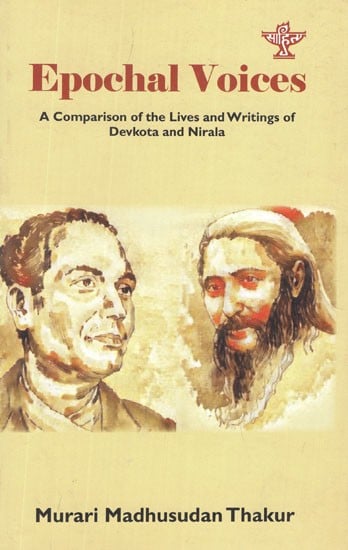
| Specifications |
| Publisher: SAHITYA AKADEMI | |
| Author: Murari Madhusudan Thakur | |
| Language: English | |
| Pages: 393 | |
| Cover: PAPERBACK | |
| 8.50 X 5.50 inch | |
| Weight 510 gm | |
| Edition: 2021 | |
| ISBN: 9789355480941 | |
| UAM702 |
| Delivery and Return Policies |
| Usually ships in 3 days | |
| Returns and Exchanges accepted within 7 days | |
| Free Delivery |
Epochal Voices, an exercise in comparative literature, compares the lives of the epoch-making Nepali poet Lakshmi Prasad Devkota and the great Hindi poet Nirala and their work. The book is based on the well-documented lives of the two poets and a close reading of the text, along with the English translation of poems selected by the author himself who spent many years in Kathmandu, Nepal, as Visiting Professor at Tribhuvan University there. After comparing many aspects of the work of the two poets in some detail, the author sums up, "While one was a child of the Indian Renaissance... in the nineteenth century, the other was almost a one-man renaissance in Nepal... Each helped usher in a new era... and made an incomparable rich contribution to his mother tongue. In their outward unlikeness and their inner unity of spirit Nirala and Devkota stand together as a powerful reminder and signpost to their people of all that binds the people of India and Nepal together in a unity that far over-weighs a thousand differences... and concludes: "Through what they suffered from all that their societies inflicted on them, we can see reflected our own failings... and our immaturity as people. In what they were still able to achieve we can see an image of our true potential as nations, we still have a long way to go before we begin to come into our own. The book is a must read for both Indians and Nepalis across the borders.
Murari Madhusudan Thakur (b. 1932) tought English, after a brilliant academic career, at Patna University (1955-1962) and at Tribhuvan University, Kathmandu under Colombo Plan ('63-65) before being invited by McMaster University, Ontario, Canada, where he lectured on early Indian tradition as University Fellow ('65-67). On return to India in 1968, he founded and ran a weekly journal, SEVEN from Patna and later set up a Community and Retreat Centre at Singhwara in North Bihar, travelling extensively all the while. In 1983, he was invited by Tribhuvan University as Visiting Professor of English (1983 1994). During this, he travelled to Malyvos on the Isle of Lesbos, Greece, to lead Retreat groups and give talks on the Upanishads at Karuna Refuge in 1987. Professor Thakur has translated Tulsidas's Hanumanbahuka (1971) and the Vinaya Patrika into English, published in 2008. Notable among his other translations into English are: Selected Poems of Nepali Poet Devkota (1998), Selected Poems of Nirala (Sahitya Akademi, 2006). Phanishwar Nath Renu's Parti Parikatha, Tale of a Wasteland (Global Vision Press) and G.P. Vimal's poems as The Unwritten and the Unseen (2010), Sartre's Les Mots (Sahitya Akademi, 2004). His Maithili version of Tarashankar Bandyopadhyay's Arogya Niketan fetched him Sahitya Akademi Translation Prize (1999). The author has also written a novel in English on Bhisma Pitamaha, Thus Spake Bhishma (Motilal Banarasidass, 1992), a Maithili travelogue, Vishwa Darshan (2005) and a novel, Devavratak Atmakatha (2010).
The poetry of Lakshmi Prasad Devkota has made a permanent place for itself in the poetic tradition of Nepali opened by Bhanubhakta (1814-1861) in mid-nineteenth century. Indeed with his rich imagination and his powerful intuitive faculty, Devkota inaugurated a new epoch in Nepali poetry and came to be acknowledged as the great poet of his time, possibly the greatest figure in all Nepali literature, with his most remarkable contribution to all its different genres. In any case, Devkota's work remains central to twentieth century Nepali poetry.
Suryakant Tripathi Nirala, the great Hindi poet, occupies a comparable place in modern Hindi poetry. A senior contemporary of Devkota, Nirala, with his mastery of Khari Boli, came to be one of the leading figures of a new movement in Hindi poetry, with Jayashankar Prasad, Sumitranandan Pant and Mahadevi Varma, generally known as Chhayavad and revolutionised its very idiom. The profound vision of life that Nirala grew into through his struggle to establish himself as a poet brought him into the great tradition of Hindi poetry: on his death in October 1961, it was acknowledged that "after Tulsidas, there has been no poetic genius in Hindi of the stature of Nirala".
Devkota and Nirala are not only contemporaries, they are also acknowledged masters in their respective fields and there is no doubt now that their work has come to stay. They have a number of influences in common such as the work of the English romantic poets, William Wordsworth, P.B. Shelley and John Keats from abroad and the poetry of Rabindranath at home. Their works often exhibit similar trends and tendencies; they share certains common characteristics as poets. Each was controversial in his own time, but literary critics in Nepali as well as in Hindi have reached a consensus today that their achievement, especially in the field of poetry, is of the highest order and has left its mark on Nepali and Hindi poetry respectively.
While both Devkota and Nirala are steeped in the classical literary tradition of the sub-continent going back to Kalidasa in the eighth century A.D., while each of them was a product of the cultural renaissance that eventually helped bring independence to the people of India from British rule, and democratic political culture to Nepal, setting it free from the Rana feudal order, each bears the unmistakable stamp of an original creative genius; each follows his own individual line of development.
**Contents and Sample Pages**
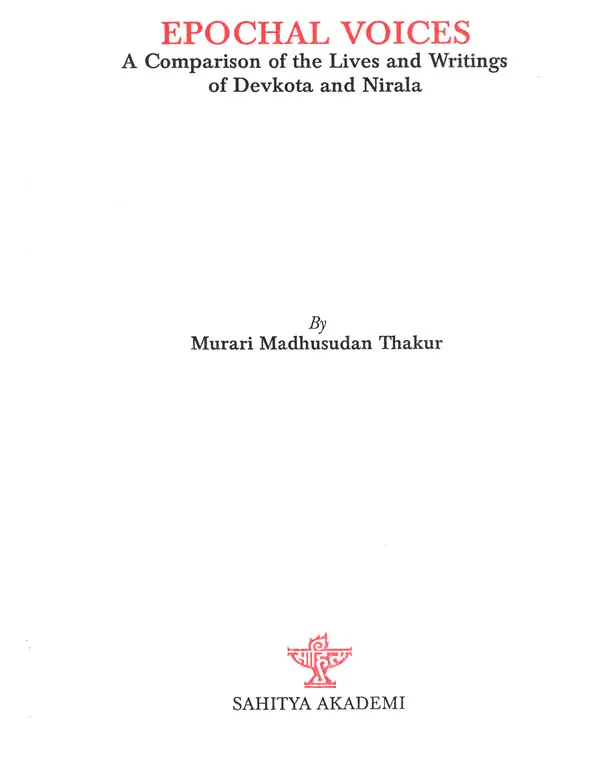
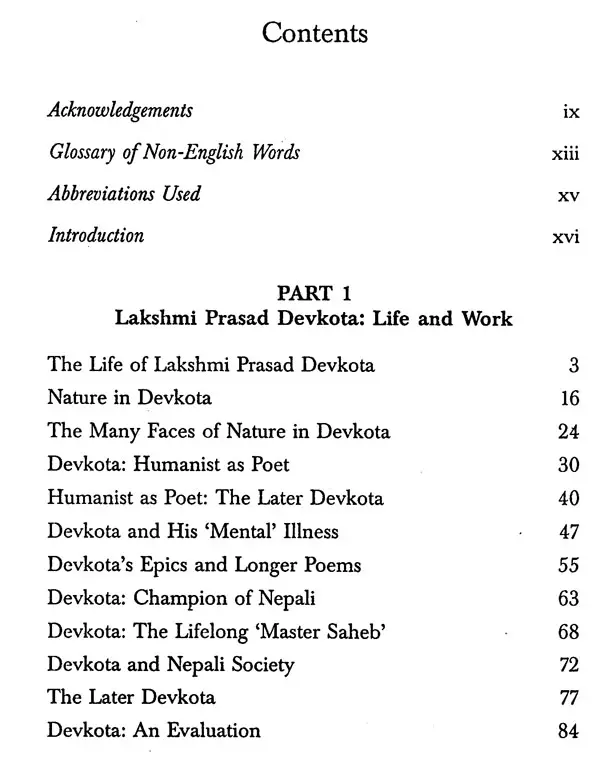
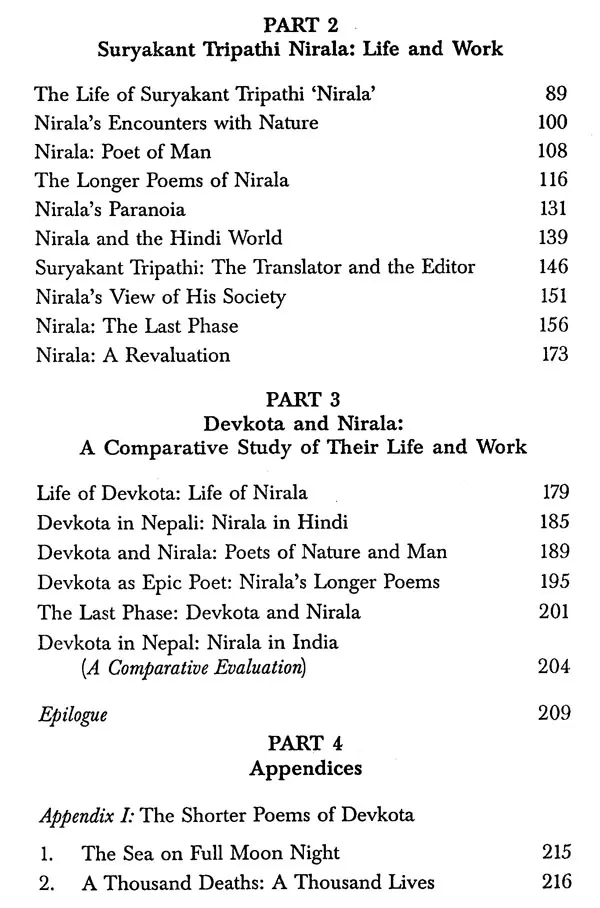
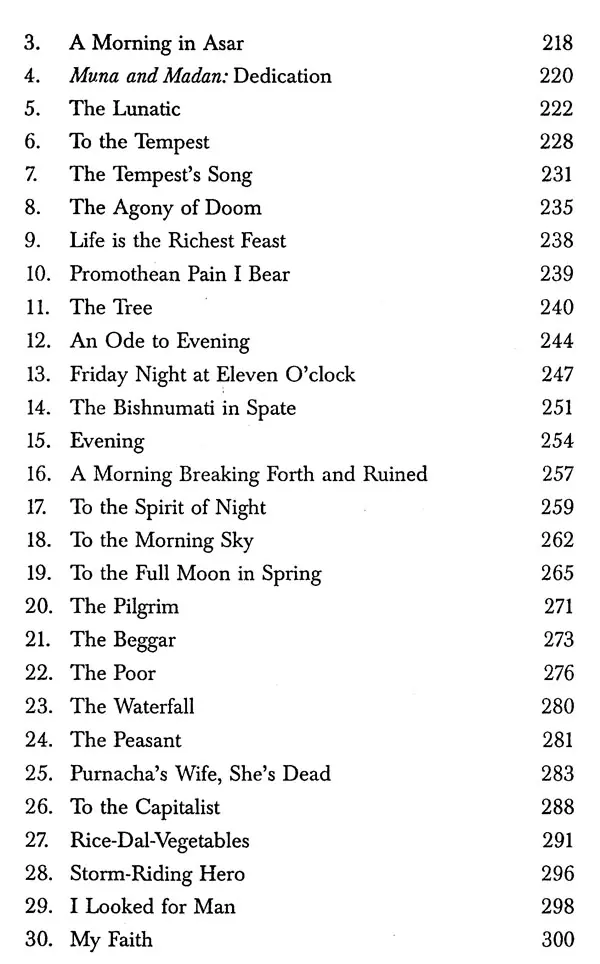
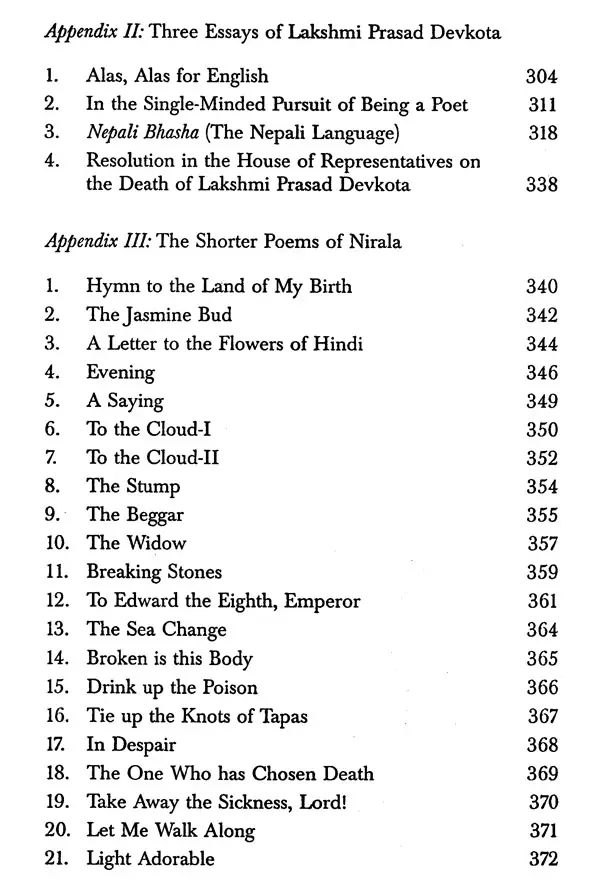
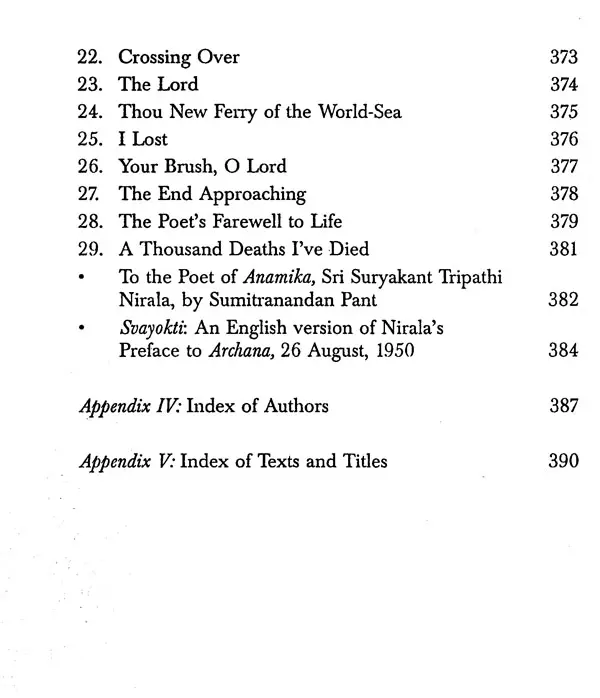
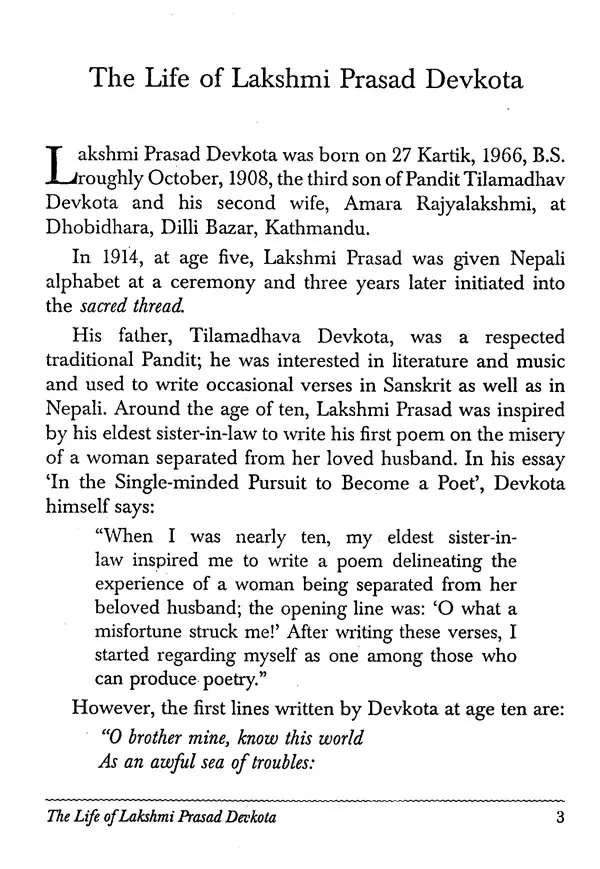
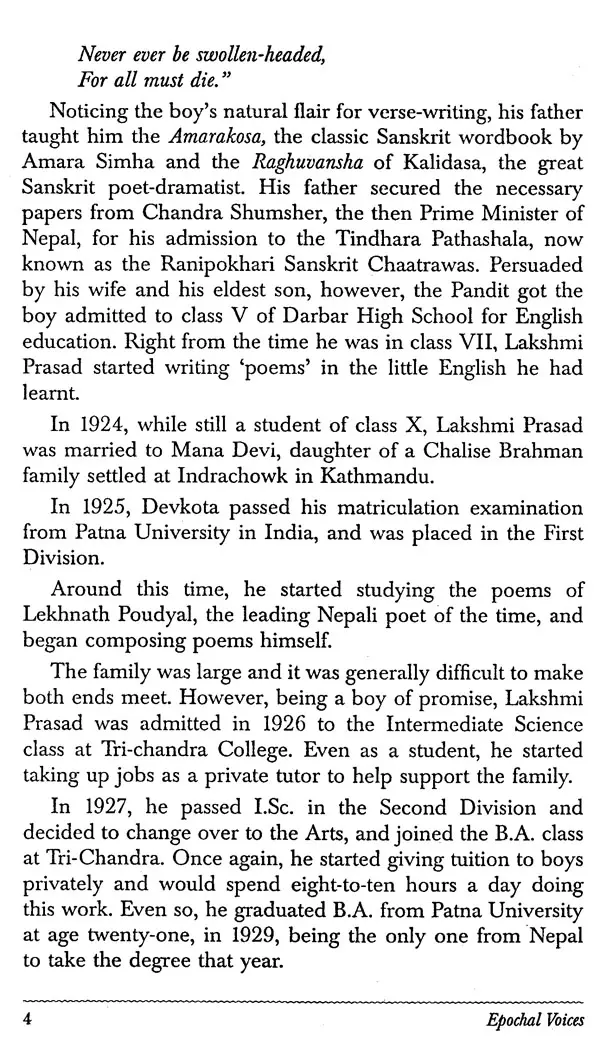
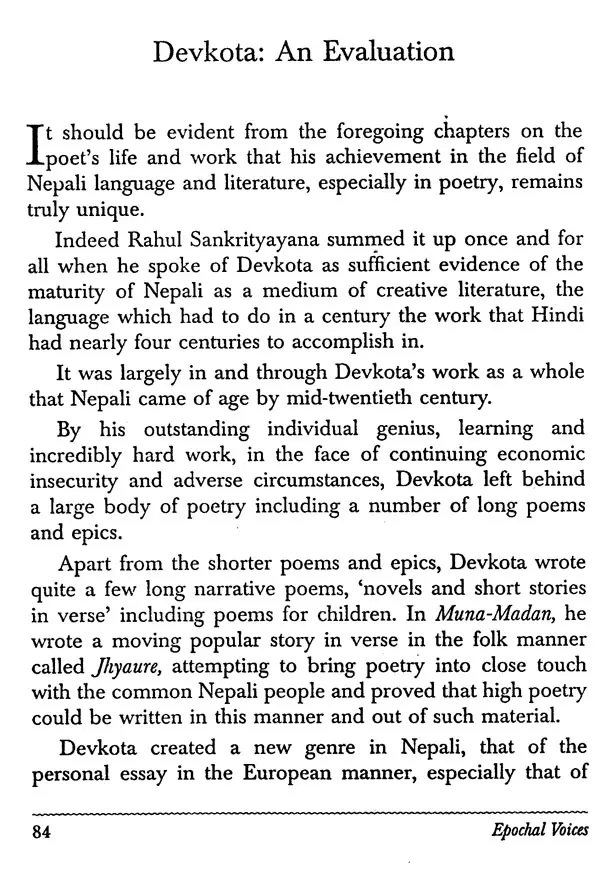
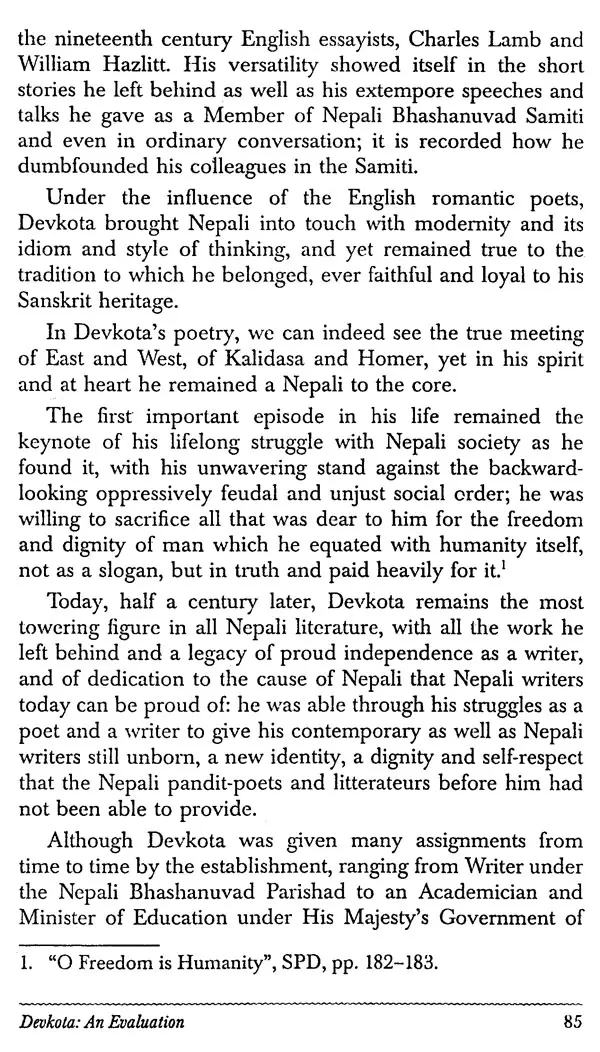
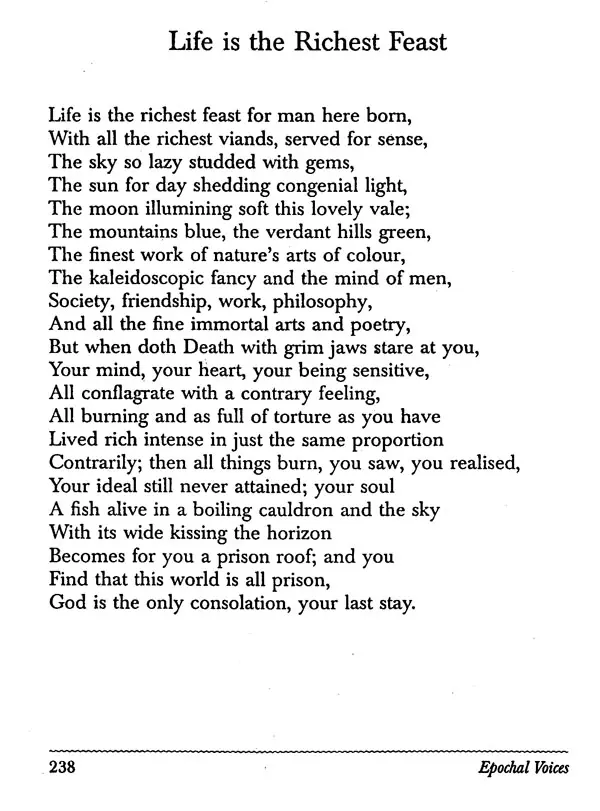
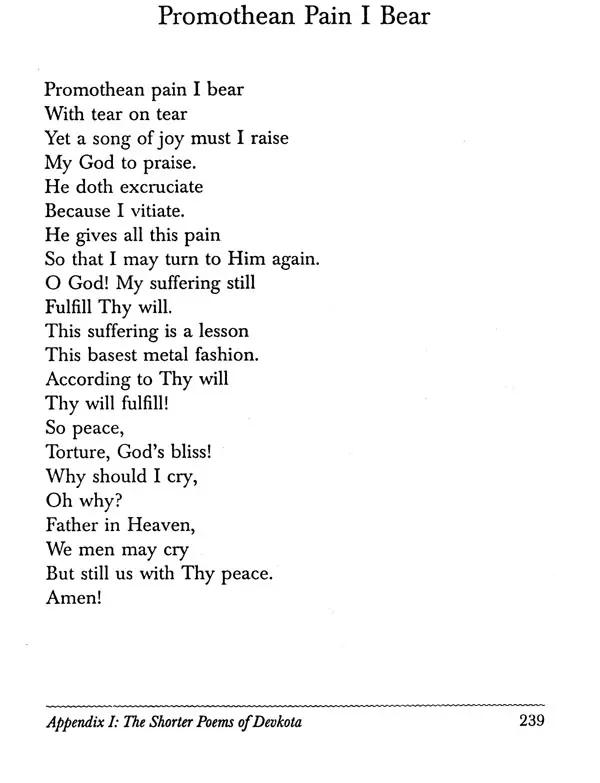
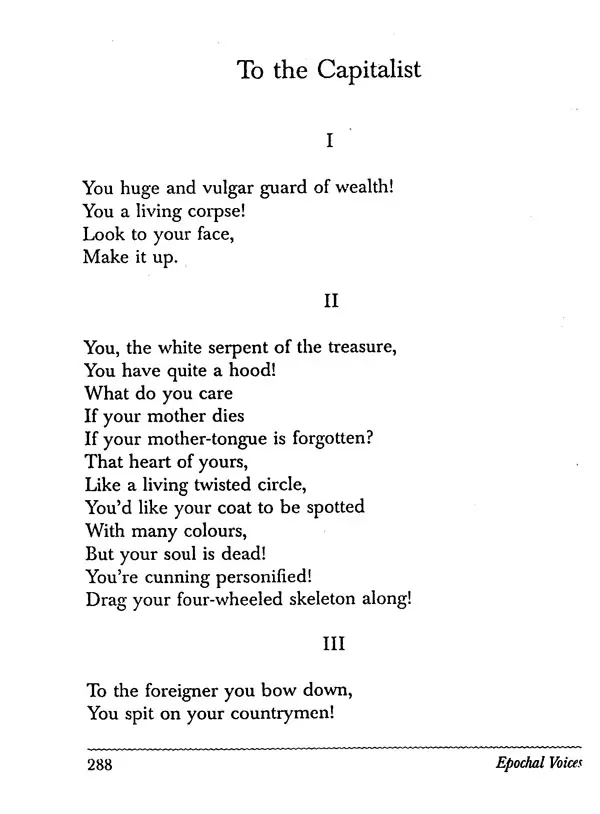
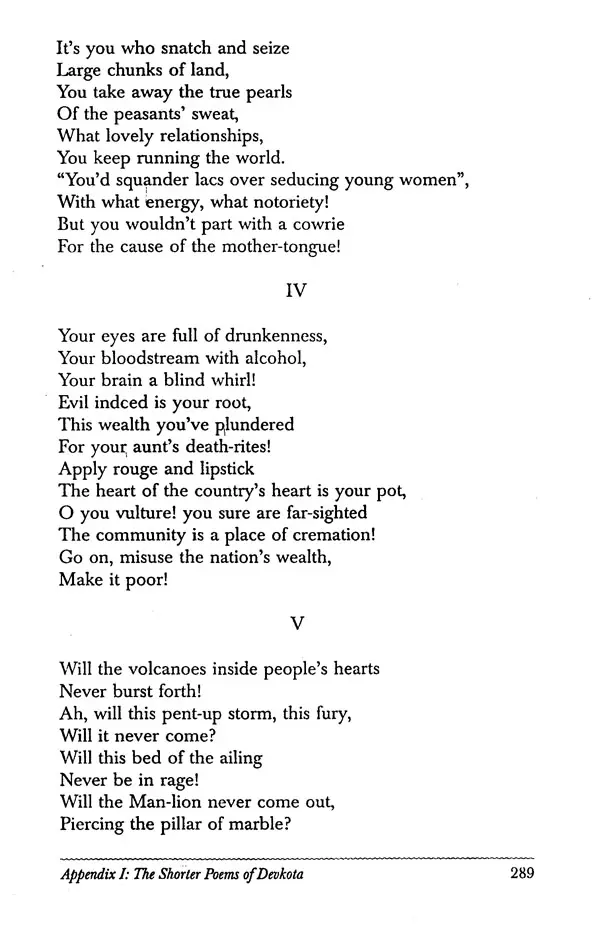
Send as free online greeting card
